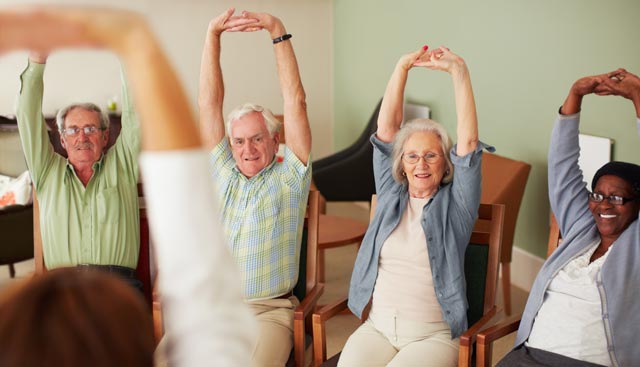
How to Start Exercising After Cancer Treatment
Completing cancer treatment is a major accomplishment. It is also a turning point at which most, if not all, survivors shift their focus from fighting cancer to preventing its return. Many experts believe that regular physical activity can be helpful in that regard.
Of course, the benefits of exercise in the general population are well known. These include enhanced physical fitness, greater muscle strength, leaner body mass and less weight gain, as well as reduced fatigue, improved self-confidence, elevated mood and a lower risk of many serious health conditions. If you’re a cancer survivor, however, exercise can not only make you fitter, stronger and thinner – it can also help you live a longer, cancer-free life.
During cancer treatment, many people naturally slow down and become less active for a variety of reasons, including fatigue, illness, stress and depression, and tend to remain sedentary after the completion of treatment. But, taking it easy is not a good way to promote long-term health. It’s important to talk with a physician who can recommend the best fitness approach for you and help you get started as soon as possible.
In general, the following types of exercise can be helpful to cancer patients (and everyone else):
- Flexibility exercises – Stretching is important to keep the body moving and maintain its flexibility, even (and especially) for people who are not yet ready for more vigorous exercise.
- Aerobic activities – Exercises like brisk walking, jogging and swimming can help build cardiovascular fitness.
- Resistance training – Lifting weights can increase strength and muscle mass, which is often lost during cancer treatment.
As a general rule of thumb, most people should try to get a minimum of 30 to 60 minutes of moderate to vigorous physical activity at least five times a week. This amount of exercise has been shown to reduce the risk of many types of cancer, as well as cardiovascular disease and diabetes. If you’ve been inactive for a while, though, it’s important to challenge yourself slowly. Find an activity that you enjoy, set achievable goals and build upon your successes. Your energy level will return gradually; in the meantime, rest when you need to and never get discouraged. Remember, doing something, no matter how small, is better than doing nothing.
If you’re a cancer survivor and would like to discuss a fitness plan with an expert at Moffitt Cancer Center, call 1-888-663-3488 or complete our new patient registration form online. You do not need a referral to request an appointment.
